It is often said that life begins at 40 and, after celebrating this milestone last year with a record-setting performance, Bri-Stor Systems is well-placed to prove this is true.
The company, which was named Converter of the Year in the 2024 Fleet News Awards, has invested heavily in enhancing its core offering as well as developing a range of innovative and sustainable solutions to help it thrive in the future.
These include a virtual reality service and electrically-powered tyre-fitting equipment for mobile fitting vans, while it is also making its operations more sustainable.
But these are not technological developments for the sake of it: they are all designed to enhance and improve the complicated process of providing commercial vehicles with the right conversions to provide operational, safety and efficiency benefits.
“There are many, many moving pieces in a van conversion, from taking the virgin vehicle from the OEM to delivering to the customer a van that’s ready to pass on to one of their engineers,” says Simon Webb, managing director of Bri-Stor Systems.
“And these pieces move on a daily or weekly basis. It’s a very fluid industry, and it may sound like a throwaway comment, but if it was easy, the OEMs would do it.
“We’ve got the ethos, the ability and a strong supply chain that enables us to be very agile and react really quickly to customers’ demands and needs.”
It is often said that life begins at 40 and, after celebrating this milestone last year with a record-setting performance, Bri-Stor Systems is well-placed to prove this is true.
The company, which was named Converter of the Year in the 2024 Fleet News Awards, has invested heavily in enhancing its core offering as well as developing a range of innovative and sustainable solutions to help it thrive in the future.
These include a virtual reality service and electrically-powered tyre-fitting equipment for mobile fitting vans, while it is also making its operations more sustainable.
But these are not technological developments for the sake of it: they are all designed to enhance and improve the complicated process of providing commercial vehicles with the right conversions to provide operational, safety and efficiency benefits.
“There are many, many moving pieces in a van conversion, from taking the virgin vehicle from the OEM to delivering to the customer a van that’s ready to pass on to one of their engineers,” says Simon Webb, managing director of Bri-Stor Systems.
“And these pieces move on a daily or weekly basis. It’s a very fluid industry, and it may sound like a throwaway comment, but if it was easy, the OEMs would do it.
“We’ve got the ethos, the ability and a strong supply chain that enables us to be very agile and react really quickly to customers’ demands and needs.”
The business, which converts around 7,000 vehicles annually, is part of The Hex Group, which also includes Alpha Manufacturing, Hex Graphics, Atlas Coating, the Hex Group Academy managed apprenticeship scheme and Hex Living, which are all based on the same site near Stafford.
This gives Bri-Stor Systems direct access to functions such as powder coating, parts manufacturing and vehicle livery to make it more responsive to individual and changing needs.
The site also has secure storage for up to 2,000 vehicles, enabling it to support customers in managing large-scale build programmes, while Bri-Stor Systems’ Neptune stores and assembly facility supports defleet, end-of-life, refurbishment and tool recycling services.
The company has also reinforced its kitting service, which allows it to load tools, parts and consumables into new vehicles before they are delivered to the end-user customer so they are ready to use immediately.
“We are 100% cradle to grave from the initial idea on a piece of paper, to five years later taking the livery off, the kit out and repurposing the vehicle to go to auction,” says Webb.
“We handle all those processes in between, plus we work really closely with all the other third parties, which quite often aren’t contracted to us commercially, but we manage that coordination for that build profile for the customer.
“It takes people a little bit of time to fully understand the relationship, because quite often, the people that we’re designing the kit for or solving problems for aren’t our customers.”
An example of this is an organisation placing an order for new vans with their leasing company, which then places the order with Bri-Stor Systems, he says. However, it needs to satisfy the requirements of the end-customer.
“It’s a triangular relationship, and quite often the leasing company effectively hands that build management over to us, from co-ordinating with the end customer over exactly what specification they want, and coordinating with the OEM for inbound vehicles,” adds Webb.
Ability to innovate
He says one of the core characteristics of Bri-Stor Systems is its ability and desire to innovate. This is reflected in a range of new solutions.
As well as virtual reality service to allow fleets to inspect a design virtually, and electric-powered tyre-fitting equipment for mobile service vans it also include its next-generation Elite Plus vehicle storage solution, which was launched last year.
“Our old Elite had been on the market for 10 to 12 years, and when we launched it that was a step forward from traditional racking as it was manufactured from high-tensile strength steel, which enabled us to reduce the thickness of the steel we were using,” says Webb.
“This ultimately reduced the weight of the kit, which gave the end-user more payload. But manufacturing methods have moved on. Our equipment has moved on, so we introduced Elite Plus.”
This, again, is lighter than its predecessor – particularly important as electric vans are becoming more common and protecting payload is ever more important – and is also stronger and more sustainable.
Supported by a more energy-efficient manufacturing and assembly process and more modular design for a reduced environmental impact – making retrofitting or upgrading it more straightforward - Elite Plus is manufactured and powder-coated at the Hex Group’s facility.
Bri-Stor Systems has also developed a virtual reality servcie, which allows fleets to look around a designed van through a headset.
“Traditionally, we hold user group meetings with engineers from the end customer where they come in for the day to discuss their requirements,” says Webb.
“We build a physical prototype vehicle and they will come back in, assess it, provide feedback on it, and we may go through this situation two or three times before we reach the final layout.
“The concept of our VR technology is that we’ll do the engineering work that we do today, but once that is done, we can put it into a virtual van and through VR the customer can experience it: once you put the headset on it feels like you’re in the back of the van.
“This speeds the process up and makes it more cost-effective. From a sustainability point of view, we’re not manufacturing one-off kits as we can do that in a VR world and maybe do two or three iterations of that and get much closer to the finished product before we actually stamp any metal.”
Webb says another advantage is that fleet engineers could see and experience the design without having to travel to the Bri-Stor Systems site, saving time, money and travel. “We’ve done a few sign-offs with customers on VR,” he adds.
The company has also developed electrically-powered tyre-fitting equipment for mobile service vans, with Halfords ordering 20 of these.
A traditional tyre-fitting van uses its ICE engine to power its equipment, with engine idling using up to two litres of fuel per hour, as well as producing CO2 and noxious gases.
However, these are eliminated in the vans fitted with the electric system as it uses a high-density lithium battery that is recharged as the vehicle travels from job to job.
Tests have found the sustainable van delivers more than a 30% reduction in fuel consumption when compared to a diesel.
Focus on sustainability
A common thread in Bri-Stor Systems’ products and development work is sustainability, with The Hex Group committing to its entire operation being carbon neutral by 2037.
It has so far installed more than 1,700 solar panels on its roofs, which can provide approximately 80% of the group’s power requirements and reduce metal fabrication CO2 by 30%, while it also challenges stakeholders to shift to sustainable alternatives.
Between 20% to 30% of the vans Bri-Stor has converted over the past few years have been electric, and to help with the new challenges this brings, the company has installed around 30 charge points on site to ensure they can be charged before they leave the site if required.
The Hex Group has also partnered with British vinyl manufacturer Metamark to offer Vinyl360 – a solution which provides a range of graphic materials that are 100% recyclable, including the backing paper as well as the vinyl - directing waste into a circular recycling process and secondary life products.
“The amount of waste the [vinyl] industry produces is phenomenal and it has been quite slow to appreciate that,” says Webb. “But interest in sustainable livery is picking up.”
Login to continue reading.
This article is premium content. To view, please register for free or sign in to read it.



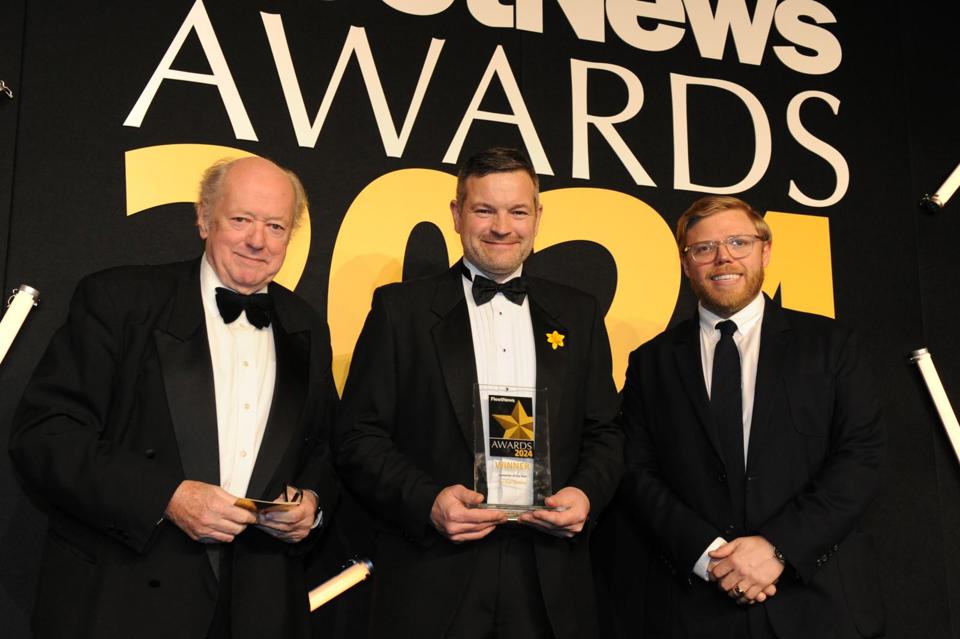




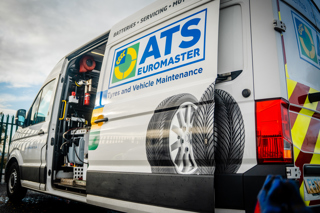
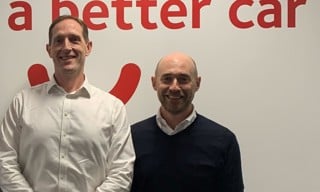
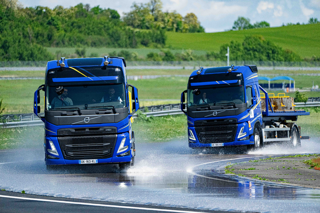
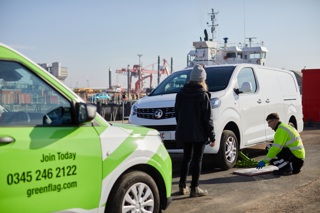












Login to comment
Comments
No comments have been made yet.